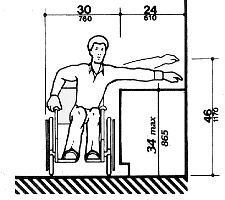In the construction and renovation industries, the proper measurement of doors is critical for ensuring they fit and function correctly. Door gauges serve as essential tools that enable professionals to achieve precise measurements of door thickness, alignment, and hardware placement. Understanding the inventory of door gauges is important for anyone involved in door installation, as these tools come in various types and serve specific purposes.

At the core of door gauge usage is the need to measure door thickness, which typically ranges from one and three-eighths inches to two inches for standard doors. However, variations exist based on the type and purpose of the door, especially in commercial or security applications. Accurate measurements are vital, as they ensure doors fit snugly within their frames and align properly with hinges and locks. This precision not only enhances the aesthetic appeal of the door but also contributes to its overall functionality and security.
One of the most commonly used types of door gauges is the caliper gauge. Available in both analog and digital formats, these tools allow for quick and accurate measurements. Digital calipers, in particular, are favored for their ease of use and clear readouts, which help professionals obtain precise measurements across various materials, including wood, metal, and composites. The versatility of caliper gauges makes them invaluable for contractors and builders who require accuracy in their work.
Template gauges are another important tool in the inventory. These gauges learn about knee space here assist in marking out the positions for hinges and locks on the door, ensuring that all components align correctly. By using a template gauge, installers can streamline their workflow and reduce the chances of errors. This efficiency not only saves time during installation but also enhances the quality of the final result, ensuring that doors operate smoothly and securely.
In addition to general-purpose gauges, there are specialized tools designed for specific types of doors. For example, hollow core doors have unique construction features that require careful measurement. Specialized gauges for these doors help ensure that measurements account for their distinct characteristics, leading to more accurate installations. Understanding the specific requirements of different door types is crucial for achieving optimal results in any project.
Maintaining a well-organized inventory of door gauges is essential for contractors and builders. Having a variety of gauges allows professionals to tackle a wide range of projects effectively, ensuring they can take accurate measurements as needed. Regular maintenance and calibration of these tools are important to preserve their accuracy over time, as wear and tear can impact performance.
In recent years, advancements in technology have introduced new measuring options to the market. Laser measuring devices provide a modern alternative to traditional gauges, offering quick and precise measurements without the need for direct contact. These tools are particularly useful for larger or more complex projects, enhancing both efficiency and accuracy.
In conclusion, the inventory of door gauges is a fundamental aspect of effective construction and renovation practices. From calipers to template gauges and specialized tools for various door types, having the right equipment is essential for ensuring accurate measurements and successful installations. As the industry evolves, staying informed about the latest tools and practices is crucial for professionals. A comprehensive inventory of door gauges not only improves the quality of work but also contributes to the overall success of construction projects, ensuring that doors are functional, secure, and visually appealing.
